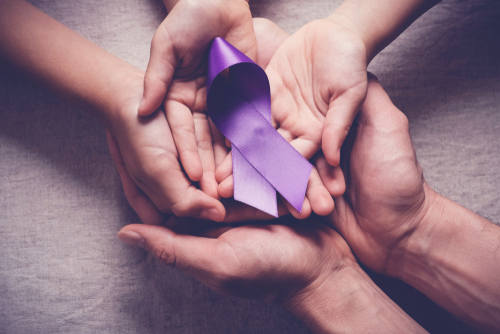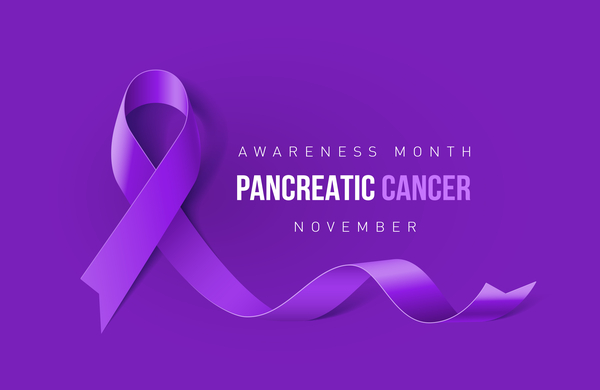Why are both of these efforts important? Well, in May 2020, the Cancer.net Advisory Board estimated that 30,400 out of 57,600 predicted pancreas cancer cases would be men. Therefore, pancreatic cancer awareness should also be raised in tandem with men’s health awareness.
Now, with all of that said, let’s look at the fundamental importance of bile acids and the role it plays in digestion and how it affects your pancreatic functions.
Bile Acids
The liver creates bile which is then stored in the gallbladder. In fact, the main function of the gallbladder is to store and release bile acids into the digestive tract to help with digestion. Once the bile is inside the main digestive tract, the bile begins breaking down food particles and preparing nutrients for absorption as the food passes into the lower intestine.
Bile is primarily made of cholesterol, bile salts, phospholipids, pigments, electrolytes, and water. The pigmentation of bile is a yellowish color. This is most notable for patients who suffer from jaundice or cholestasis, where the eyes and skin become yellow.
What Do Bile Acids Do?
Beyond aiding in the digestion of fats, bile acids also serve to eliminate cholesterol, which is otherwise insoluble in water. However, the acids and lipids in bile work to break up cholesterol molecules.
There are also several types of bile acids and bile salts that form during digestive functions. (List some of them) And because these substances are changing through digestion, most of them are actually reabsorbed into the bloodstream and reincorporated into the digestive system.
Bile and Gallstones
However, for all of their important functions, bile also carries certain substances that can sometimes coagulate and cause gallstones. The risk of developing gallstones increases with age and diet composition. Particularly, if your diet contains high levels of cholesterol, your risk of gallstones increases significantly.
Additionally, because bile release is triggered by eating fatty foods, high-fat diets can also increase your risk of gallstones. Other risks and warning signs include:
-
-
- Obesity
- Sedentary lifestyles
- Pregnancy
- Low-fiber diet
- Diabetes
- Liver disease
- Sickle Cell anemia
- Leukemia
- Rapid weight loss
- Taking oral contraceptives
- Hormone therapy drugs
- Medications with estrogen
-
Finally, if you are of Native or Mexican American descent, or are age 40 or older, you also have a higher risk of developing gallstones.
If you’re suffering from gallbladder attacks or severe gallstones it may be time to have your gallbladder removed. One of our general surgeons in Nashville can easily perform a cholecystectomy. Some of our surgeons even offer robotic single-site gallbladder removal surgery.
These procedures are faster, more accurate, and decrease your downtime significantly. Alternatively, we can also perform laparoscopic gallbladder surgery at our general surgery Nashville offices.
How Bile Acids Affect the Pancreas
Because the pancreas and the gallbladder are a part of the same digestive loop, they have an effect on each other. Additionally, it’s been found that bile acids are linked to carrying carcinogens[1] and often are one of the main risk factors of colorectal cancer.
When the gallbladder becomes blocked, the stored and concentrated bile leaks into the surrounding tissues. Typically, this causes jaundice. However, it is possible that excess bile could lead to the development of pancreatic cancer through carcinogen exposure[2].
What is Pancreatic Cancer

Like with any type of cancer, this disease occurs when the body’s cells mutate and replicate themselves into tumors. Sometimes, pancreas cancer is called the silent cancer because it can often take years for symptoms to develop.
Common symptoms of pancreas cancer include:
- Abdominal pain
- Back pain
- Sudden weight loss
- Nausea
- Jaundice
Types of Pancreas Cancer
The most common type of pancreas cancer is pancreatic adenocarcinoma. This type of cancer forms along the duct lining in the pancreas. Alternatively, if cancer cells develop on the cells that create pancreatic enzymes it becomes acinar cell carcinoma, which is extremely rare.
Other rare types of pancreatic cancer include:
- Squamous Cell Carcinoma
- Adenosquamous Carcinoma
- Colloid Carcinoma
- Pancreatic Neuroendocrine Tumors (PNET)
PNETs (also called Islet Cell tumors) in particular, are unique from other pancreatic forms of cancer, in that they develop from endocrine cells that produce important hormones like insulin. Typically, PNETS only form in about 7 percent of call pancreas cancer cases.
What are the risks of pancreatic cancer?
The main risk factors of pancreas cancer include age, race, gender, genetics, and family history of cancer. Men in particular have a higher chance of developing pancreas cancer.
Other risks include smoking and tobacco use, obesity, and diabetes.
What can I do if I’m at risk?
Because you can’t control most of the risk factors for cancer, the best thing you can do is start taking charge of your health where you can. If you smoke or use tobacco, now is the time to stop. Do your best to maintain healthy habits with diet and exercise in order to lose weight. Maintaining a healthy diet is especially important if you’re at risk for or have been diagnosed with diabetes.
What Treatment Options are for Pancreatic Cancer?
There are many ways to treat pancreatic cancer, and what works for one patient may not work for another. Therefore, when you work with a team of surgical oncologists, like the team at The Surgical Clinics of Tennessee, your plan will be customized to you.
Your treatment plan may include procedures and operations such as:
- Whipple procedure
- Distal pancreatectomy
- Total pancreatectomy
- Radiofrequency ablation therapy
- Embolization therapy
- Radiation therapy
- Chemotherapy
Because pancreas cancer is hard to detect, often the cancer has spread to other parts of the body when treatment begins. As a result, most pancreatic cancer treatments are intense and challenging for the patient. And when potentially curative treatments may not cure the cancer entirely, oncologists can provide treatments to improve the patient’s symptoms and quality of life.
How can I get involved in raising awareness?

Since every November is Pancreatic Cancer Awareness Month, there are many foundations, organizations, and events you can join.
Last month, Tennesseans participated in a virtual fundraising event called Virtual PurpleStride Tennessee 2020 on October 10, 2020. Their goal was to raise $40,000 to give cancer patients and their families free access to resources from the Pancreatic Cancer Action Network. And in the end, they raised a total $54,913!
Here are a few more resources to help you get involved in Pancreatic Cancer Awareness Month:
Pancreatic Cancer Treatment in Tennessee
If you or a loved one needs treatment for pancreas cancer, schedule a consultation with the surgical oncologists at The Surgical Clinic. All of our surgeons are board-certified professionals who will fight for you against your cancer.
Testicular Cancer, Prostate Cancer, and Men’s Health Efforts
As we mentioned, November is also a month where men’s health awareness is celebrated. You’ve probably heard of No-Shave November, but Movember is another men’s health awareness organization that targets all types of men’s health issues.
Join Us In Raising Awareness
We hope that this information has been helpful and educational. Our hope is that you will take these resources and share them with your friends and family on social media to continue raising awareness.
Additional Sources:
- Rodrigues, C. M. P., Castro, R. E., & Steer, C. J. (2004, January 1). 5. THE ROLE OF BILE ACIDS IN THE MODULATION OF APOPTOSIS. ScienceDirect.
- Feng, H. Y., & Chen, Y. C. (2016). Role of bile acids in carcinogenesis of pancreatic cancer: An old topic with new perspective. World journal of gastroenterology, 22(33), 7463–7477.
- Ciaula, A. D., Wang, D. Q.-H., Molina-Molina, E., Baccetto, R. L., Calamita, G.,
Palmieri, V. O., & Portincasa, P. (2017, November 1). Bile Acids and Cancer: Direct and Environmental-Dependent Effects. ScienceDirect. - Ellis, M. E. (2020, July 27). Pancreatic Neuroendocrine Tumor (PNET). Healthline.
- Gallstones – Symptoms and causes. (2019, August 8). Mayo Clinic.
Nashville General Surgeons at The Surgical Clinic
Suhail Allos, MD
General Surgeon
John A. Boskind, MD, FACS
General Surgeon
Patrick T. Davis, MD, FACS
General Surgeon & Bariatrics
Brent A. Fruin, MD
General Surgeon
Andrew W. Garrett, MD
General Surgeon
Trudie A. Goers, MD, FACS
General Surgeon
Bassam Helou, MD
General Surgery
Mark S. Hinson, MD, FACS
General Surgeon
George B. Lynch, MD, FACS
General Surgeon & Bariatrics
Clinton A. Marlar, MD
General Surgeon
James G. McDowell, MD, FACS
General Surgeon & Bariatrics
Willie V. Melvin III, MD, FACS
General & Robotic Surgery
Chad M. Moss, MD, FACS
General Surgeon
Gregory E. Neal, MD, FACS
General Surgeon
Drew H. Reynolds, MD
General Surgeon
Joshua T. Taylor, MD, FACS
General & Robotic Surgery
Craig Ternovits, MD
General Surgeon
K. Tyson Thomas, MD, FACS
General Surgeon
J. Tyler Watson, MD
Minimally Invasive & Robotic General Surgery

